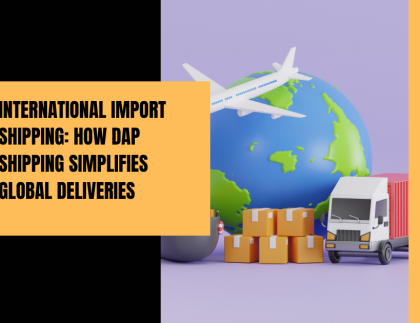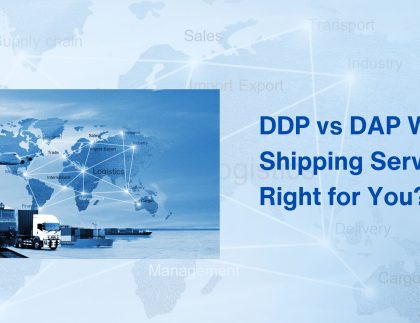
Discover the unmatched benefits ocean shipping offers for international trade and why it forms the backbone of global trade.
Economic Advantages: Cost-Effectiveness of Ocean Shipping
Ocean shipping is one of the cheapest ways of moving goods around the world. Since sea freight services can carry huge volumes of cargo at one time, per-unit costs are often lower than for either air or land transport. That means a huge saving for the business engaged in international trade.
Sea freight services saves more money on fuel compared to other means of transportation on a per-ton-mile basis. If the businesses intend to save cost on logistics, they can fully exploit the reduced logistics cost. The cost effectiveness of sea freight services allows business to offer lower prices on their product that will stimulate the trading activities and consequently boost economic growth.
Sustainability: Greener Transportation
Shipping across the ocean is, in the context of sustainability, a greener way of transportation. It generates much less CO2 per ton-mile than trucks and airplanes do, which makes a huge difference when large quantities of goods need to be transported over long distances.
The shipping industry has also been shifting towards more sustainable practices through cleaner fuels and more energy-efficient technologies. These reductions in the footprint of ocean shipping also help address global initiatives combating climate change.
Capacity and Scalability: Satisfying Global Demand-Ocean shipping
Its main advantages are the unmatched capacity and scalability of ocean shipping. That is, one cargo ship can hold thousands of containers within a single voyage, which means huge quantities of goods can be moved efficiently. It is notably important for the kinds of businesses that maneuver high-volume movements of products-such as manufacturing, agriculture, and retail.
Furthermore, sea freight services offers scalable services whereby one can scale shipping volumes in proportion to the fluctuating demands in the market. From small consignments to full shipload, the versatility of ocean carriers ensures solutions tailored to meet all needs in international trade.
Global Connections: Connecting Markets Across Borders
Ocean shipping is a conduit connecting the markets of the world. Since the number of routes and ports involved in ocean shipping is so large, goods can be moved almost anywhere in the world. This further enables businesses to reach new markets and increase their customer base due to international trade.
Ocean shipping fills geographical gaps in the flow of goods, services, and economic activities between countries. This is an integral part of the global supply chain since it ensures that any product derived from one part of the world can successfully reach a consumer in another, thus developing economic interdependence and growth.
Technological development in the ocean shipping industry has dramatically changed the industry because it makes shipping more efficient and reliable. Modern navigation systems, automated cargo handling equipment, and communication technologies are included in new ships designed to make operation easier and decrease transit times.










